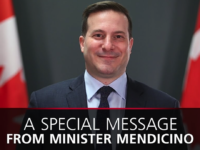Earlier this year, Public Safety Minister Marco Mendicino introduced Bill C-26, new cyber-security legislation. The bill may address an issue that is widely regarded as essential, but once Canadian privacy and civil liberties had the opportunity to review the fine print in the bill, many came away concerned. Indeed, by September a coalition of groups and experts wrote to the Minister and party leaders, stating “Bill C-26 is deeply problematic and needs fixing”, warning that it risks undermining privacy rights.
Brenda McPhail, the Director of the Privacy, Technology and Surveillance Program at the Canadian Civil Liberties Association, led the effort to place Bill C-26 in the spotlight. She joins the Law Bytes podcast to discuss the bill and the myriad of concerns that it raises.











